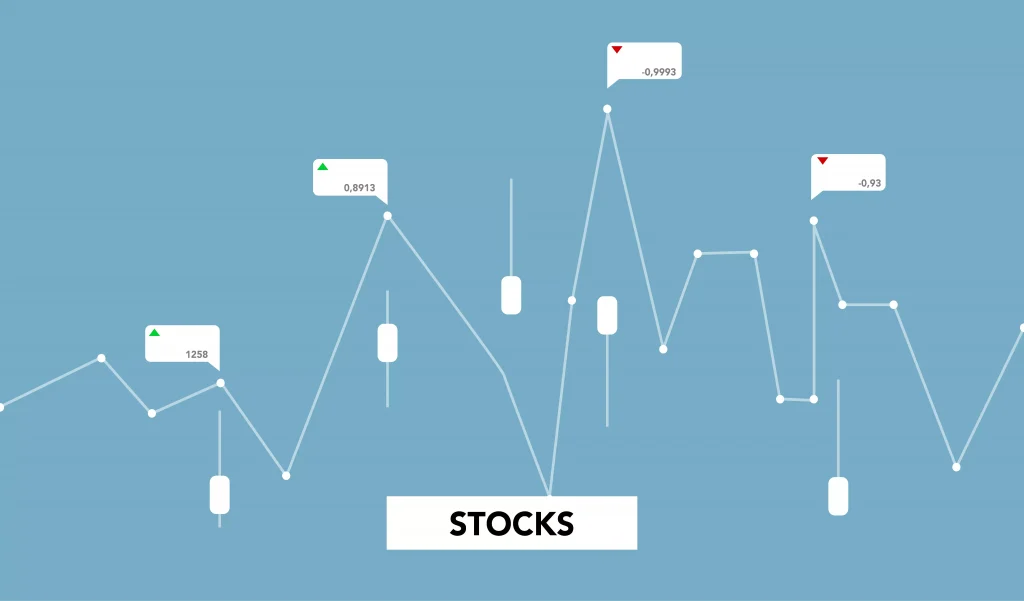Mutual funds, Stock Market Indices, Initial Public offering, brokerage account, it all sounds confusing we know! You’re not alone if the prospect of investing in the stock market makes you nervous.
Individuals with little or no experience in stock investing are either terrified by horror stories about the average investor losing half of their portfolio value—for example, in the two bear markets that have already occurred this millennium—or seduced by “hot tips” that promise huge profits but rarely deliver. It’s no surprise, therefore, that the investing pendulum is considered to swing back and forth between fear and greed.
The truth is that investing in the stock market is risky, but when done correctly, it may be one of the most effective methods to increase one’s net worth. While the value of one’s property often accounts for the bulk of an individual’s net worth, most affluent and extremely wealthy people invest the majority of their fortune in stocks.
Let’s start with the definition of a stock and its many varieties in order to comprehend the stock market’s mechanics.
The Essentials

The essential thing you need to keep in mind is that the stock prices and share prices are not always the same. Market makers follow the market index of the common stock and different classes of stock. If you want to see it for yourself follow the New York Stock Exchange for one day for example. Look into it three times in a day, and pick 3 stocks for example.
Check them three times a day and see the fluctuations. Institutional investors care about the number of shares. Less number of charges means less money. The history of stock exchanges and wall street in the early days and also the S&P 500 are very important. Traders use different types of shares of a company and then later one trades their own shares to a higher market price.
They buy share of stock at the lowest price because they keep an eye on the stock index track. For example, apple inc has a higher overall market price. They, therefore, aim at lower stocks that may experience a surge in trading volumes and therefore reach the highest price.
When that happens they sell it. Also, it is important to keep in mind that stock analysis is very important and that a retail broker might not analyze it the same as a Wall Street Broker. But enough about essentials, let’s start from the beginning. See the video below for more information.
What Is a Stock?

A stock is a financial instrument that reflects a proportional claim on a company’s assets (what it owns) and earnings (what it generates in profits).
Stocks are also known as shares or equity in a firm. Stock ownership entails owning a piece of the firm equal to the number of shares owned as a percentage of the total number of outstanding shares.
A person or organization who holds 100,000 shares of a business with one million outstanding shares, for example, owns 10% of the firm. The majority of firms have outstanding shares in the millions or billions of dollars.
Types of Stock

While there are two forms of stock: common and preferred, the word “equities” refers to common shares since their aggregate market value and trading volumes are several orders of magnitude more than preferred shares.
The main difference between the two is that common shares usually come with voting rights, allowing common shareholders to participate in corporate meetings (such as the annual general meeting or AGM) where issues like the board of director election and auditor appointment are voted on, whereas preferred shares usually don’t. Preferred shares are so titled because preferred shareholders get dividends and assets before common shareholders in the event of a liquidation.
The voting rights of common stock may be divided into two categories. While the fundamental idea of common stock is that each share should have the same voting rights (one vote per share owned), some corporations have dual or multiple classes of stock, each with separate voting rights.
Class A shares, for example, may have ten votes per share, but Class B subordinate voting shares may only have one vote per share under a dual-class structure. The founders of a firm may control its fortunes, strategic direction, and capacity to innovate using dual- or multiple-class share arrangements.
What is the stock market?

One of the main stock market indexes, such as the Dow Jones Industrial Average or the Standard & Poor’s 500, is commonly referred to as the “stock market.” When you buy stock in a public corporation, you are buying a little piece of the firm.
Because it’s difficult to keep track of every single firm, the Dow and S&P indexes each represent a segment of the stock market, and their performance is seen as emblematic of the whole market. Buying stocks online is normally done via the stock market, which anybody with a brokerage account, Robo-advisor, or employee retirement plan may access.
To invest in the stock market, you don’t have to be an “investor” in the traditional sense; for the most part, anybody may do so. The Securities and Exchange Commission (SEC) regulates the stock market, and its objective is to “protect investors, ensure fair, orderly, and efficient markets, and stimulate capital creation.”
The stock market may have dropped down, or the stock market may have closed up or down for the day, according to a news headline. Typically, this indicates stock market indices have risen or fallen, implying that the companies inside the index have gained or lost value as a whole. Those that purchase and sell stocks seek to benefit from the fluctuation in stock prices.
How Does The Stock Market Work?

We talk about the United States mainly. A stock market may be thought of as a secure and well-regulated auction house where buyers and sellers can haggle over prices and swap assets. A stock market is a network of exchanges where corporations may list their shares. After then, investors acquire shares and trade them between themselves.
Many of the investors are large funds with a lot of cash, but anybody may purchase and sell via a broker like Acorns. You’ve probably seen scenes in movies or TV programs when buyers and sellers are excitedly screaming “Buy, buy, buy!” or “Sell, sell, sell!” on the floor of the New York Stock Exchange.
Whereas the stock market has traditionally been a physical marketplace, such as the New York Stock Exchange and the American Stock Exchange, stocks are now more routinely exchanged via a variety of trading platforms. Almost all transactions are now completed online rather than in person.
Although the exchange lists numerous stocks, the public listing is not a necessity for stock transactions. Later on, we’ll discuss private stocks and over-the-counter marketplaces.
How do you invest in the stock market?

You may already be investing in the stock market if you have a 401(k) via your employer. In 401(k)s, mutual funds, which are frequently made up of stocks from a variety of corporations, are widespread. Individual stocks may be purchased using a brokerage account or an individual retirement plan (IRA). You may create both accounts with an internet broker and use them to purchase and sell stocks.
The broker serves as a go-between for you and the stock exchanges. You don’t have a brokerage account? Find out how to open one. Online brokerages have simplified the enrollment procedure, and after you’ve funded your account, you may choose the assets that are suitable for you. There are dangers associated with every investment.
Stocks, on the other hand, represent a higher risk — and a higher potential profit — than other investments. While the market’s track record shows that a well-diversified stock portfolio will grow in value over time, stocks may sometimes undergo sharp drops. You may invest in an index fund or an exchange-traded fund to develop a diversified portfolio without having to buy a lot of individual equities.
By owning all of the stocks or assets in an index, these funds try to passively duplicate the index’s performance. Index funds and ETFs, for example, may be used to invest in the DJIA and the S& P 500, as well as other market indices. Stocks and stock mutual funds are great for long-term investments, such as retirement, but not for short-term investments (generally defined as money you need for an expense within five years).
With a short-term investment and a tight deadline, you’re more likely to require the money back before the market has recovered its losses. The bid price and the stock market supply are also important factors. Additional funds are necessary for sellers of shares and sellers of stocks as well as for the average person. Large companies and company’s equity acquire such capital to buy stocks in the fair market. To learn step by step, check out the video below.
Read more articles in the Business Category
